Eat Better, Not Less: The Key to Weight Loss
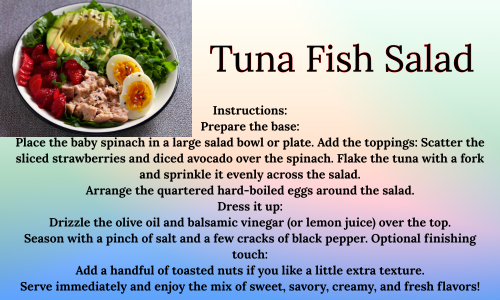
The idea of “eating less” often dominates conversations about weight loss and health. But the truth is, lasting wellness doesn’t come from cutting calories to dangerous lows — it comes from eating better.
Choosing quality foods over simply reducing quantity is crucial not only for weight loss but also for strengthening the immune system, preventing deadly diseases, and even protecting the brain from devastating conditions like dementia.
Weight Loss: Nourish to Flourish
Crash diets and severe calorie restriction may seem effective at first. The number on the scale drops, but at a steep cost: your metabolism slows down, muscle mass disappears, and energy levels plummet. Worse, restrictive diets often lead to a cycle of binge-eating and yo-yo dieting, making weight management harder in the long run.
Instead, focusing on nutrient-dense foods — like vegetables, fruits, lean proteins, healthy fats, and whole grains — fuels your body properly. These foods satisfy hunger naturally, stabilize blood sugar levels, and support the body’s natural fat-burning processes. Eating better means giving your body the tools it needs to shed fat while preserving muscle and keeping metabolism strong.
A Stronger Immune System Starts with the Right Plate
Your immune system is powered by what you eat. Starving your body or feeding it with processed, low-nutrient foods weakens your defenses against viruses, bacteria, and even cancer. Chronic nutrient deficiencies — especially in vitamins like C, D, and E, and minerals like zinc and selenium — leave the body vulnerable to frequent illness and longer recovery times.
In contrast, a diet rich in antioxidants, phytonutrients, and healthy fats supports robust immune function. Fresh produce, fatty fish, nuts, seeds, and fermented foods build a stronger, faster, more adaptive immune system your first line of defense against both everyday infections and more serious, life-threatening diseases.
Food and the Fight Against Deadly Diseases
Modern research is crystal clear: unhealthy eating is a major driver behind today’s biggest killers, heart disease, diabetes, and cancer. Diets high in sugar, processed meats, trans fats, and refined carbs cause chronic inflammation, hormonal imbalances, and metabolic dysfunction. Over time, this creates the perfect environment for disease to take root.
On the other hand, eating a diet based on whole, natural foods reduces inflammation, improves insulin sensitivity, balances cholesterol, and repairs cellular damage — dramatically lowering the risk of developing these deadly conditions. It’s not about eating less; it’s about eating right
The Hidden Link Between Diet and Dementia
What you eat doesn’t just affect your waistline — it shapes your brain’s future. Studies increasingly show that unhealthy diets (especially those rich in sugar and processed foods) are strongly linked to higher rates of dementia, including Alzheimer’s disease.
Poor eating habits contribute to chronic brain inflammation, oxidative stress, insulin resistance in the brain (sometimes called “Type 3 Diabetes”), and accelerated cognitive decline.
Conversely, diets rich in leafy greens, berries, nuts, fish, and olive oil — like the Mediterranean and MIND diets — have been shown to protect memory, preserve cognitive function, and slow brain aging.
Eating better fuels the brain with essential nutrients, supports healthy blood flow, reduces inflammation, and helps guard against the buildup of amyloid plaques that are associated with Alzheimer’s.
Final Thought: Eating to Thrive
In a world that often glorifies eating less, it’s time we champion eating better. Your body, your mind, and your future depend on it.
7 healthy recipes that are perfectly aligned with the idea of eating better, not less.

Brain-Boosting Berry & Nut Smoothie
1 cup mixed berries (blueberries, strawberries, raspberries) 1 tablespoon chia seeds. 1 tablespoon almond butter, 1 scoop plain protein powder (optional).
1 cup unsweetened almond milk, ½ banana (for creaminess). 1 Handful of spinach (you won’t taste it!) Ice cubes
Instructions:
In a blender, add almond milk, spinach, banana, and protein powder (if using). Toss in berries, chia seeds, almond butter, and a few ice cubes.
Blend on high until smooth and creamy. Pour into a glass and enjoy immediately!
Why it’s powerful: Berries are packed with antioxidants to protect your brain and cells.
Chia seeds and nuts provide healthy fats and fiber.
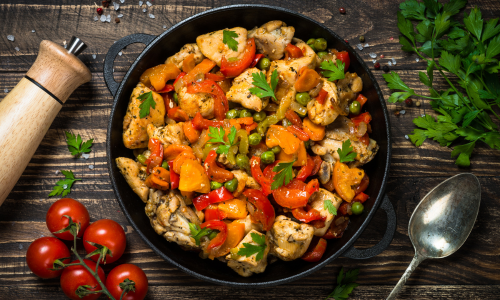
Immune-Powering Turmeric Chicken Stir-Fry
Ingredients:
1 lb chicken breast, diced. 1 tablespoon coconut oil. 1 tablespoon turmeric powder, 1 teaspoon ground ginger. 1 cup broccoli florets. 1 red bell pepper, sliced zucchini, sliced. 2 cloves garlic, minced. 2 tablespoons low-sodium soy sauce (or coconut aminos)
Instructions:
Heat coconut oil in a large skillet or wok over medium-high heat. Add chicken pieces, turmeric, and ground ginger. Stir-fry until browned (about 5–7 minutes). Add garlic, broccoli, bell pepper, and zucchini. Stir-fry another 4–5 minutes. Splash soy sauce over everything, stir well, and cook 1 more minute. Serve hot, maybe over cauliflower rice for extra veggies.
Why it’s powerful: Turmeric and ginger are anti-inflammatory warriors; colorful vegetables are loaded with immune-boosting antioxidants.
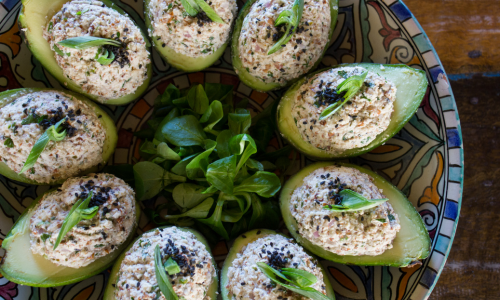
Heart-Healthy Avocado Tuna Salad
Ingredients:
1 ripe avocado. 1 can of wild tuna in water, drained. ½ red onion, finely chopped
1 small cucumber, diced. Juice of 1 lime. 1 tablespoon extra-virgin olive oil
Salt and pepper.Fresh cilantro or parsley (optional)
Instructions:
In a bowl, mash the avocado with lime juice. Add tuna, onion, cucumber, olive oil, salt, and pepper.
Mix everything gently. Top with fresh herbs if desired. Serve with lettuce wraps, whole-grain crackers, or over greens.
Why it’s powerful: Avocados provide brain-loving healthy fats, while tuna adds lean protein and omega-3s.
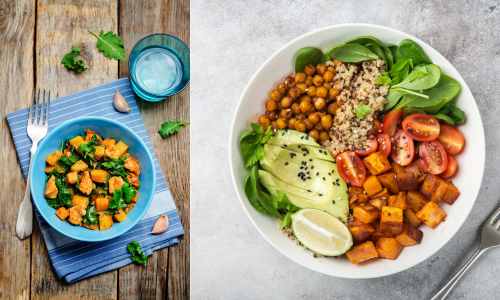
Anti-Inflammatory Sweet Potato & Kale Power Bowl
Ingredients:
2 medium sweet potatoes, peeled and diced.1 bunch kale, chopped (stems removed)
1 tablespoon olive oil. 1 teaspoon smoked paprika. 1 can of chickpeas, drained and rinsed
1 tablespoon tahini. 1 tablespoon lemon juice. 1 teaspoon cumin. Salt and pepper
Instructions:
Preheat oven to 425°F (220°C).
Toss sweet potatoes with olive oil, paprika, salt, and pepper; roast for 20–25 minutes.
Massage kale with a pinch of salt to soften.
In a small bowl, mix tahini, lemon juice, cumin, and a little water to make a dressing.
Assemble bowls with roasted sweet potatoes, kale, chickpeas, and drizzle tahini dressing over the top.
Why it’s powerful: Sweet potatoes and kale are nutrient powerhouses for immune health, and chickpeas support gut and brain health.
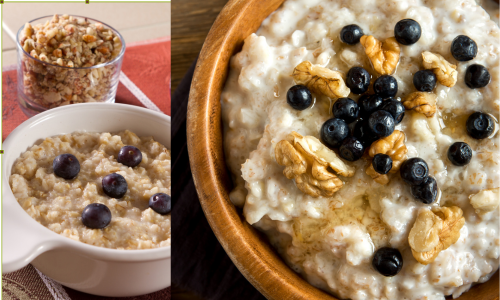
Memory-Boosting Walnut & Blueberry Oatmeal
Ingredients:
½ cup rolled oats. 1 cup unsweetened almond milk or water. ½ cup fresh or frozen blueberries
1 tablespoon crushed walnuts. 1 tablespoon ground flaxseed. Dash of cinnamon
Honey or maple syrup (optional)
Instructions:
Cook oats in almond milk or water over medium heat, stirring occasionally.
When almost done, stir in blueberries, walnuts, flaxseed, and cinnamon.
Drizzle with a little honey if desired. Serve warm.
Why it’s powerful: Walnuts, flaxseeds, and blueberries are all champions for brain health and memory protection.
Mediterranean Brain-Saving Salmon
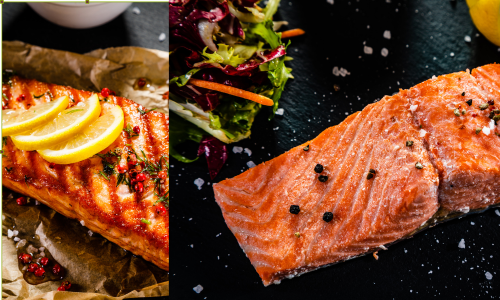
Ingredients:
2 salmon fillets (wild-caught preferred). 2 tablespoons olive oil. Juice of 1 lemon, 2 garlic cloves, minced. 1 teaspoon dried oregano. 1 teaspoon paprika, Salt, and pepper to taste. Fresh parsley (for garnish)
Instructions:
Preheat oven to 400°F (200°C). Place salmon on a lined baking sheet. In a small bowl, mix olive oil, lemon juice, garlic, oregano, paprika, salt, and pepper.
Brush the salmon with the mixture. Bake for 12–15 minutes, or until salmon flakes easily. Garnish with fresh parsley before serving.
Why it’s powerful: Salmon is rich in omega-3 fats that protect brain cells and fight inflammation linked to dementia.
Final Thought: Eating to Thrive
Starvation is not the path to health. Neither is a diet loaded with low-quality, nutrient-poor foods. Real, lasting health — including healthy weight loss, a resilient immune system, protection from chronic disease, and a sharper mind — demands better eating, not less eating.
Menu
